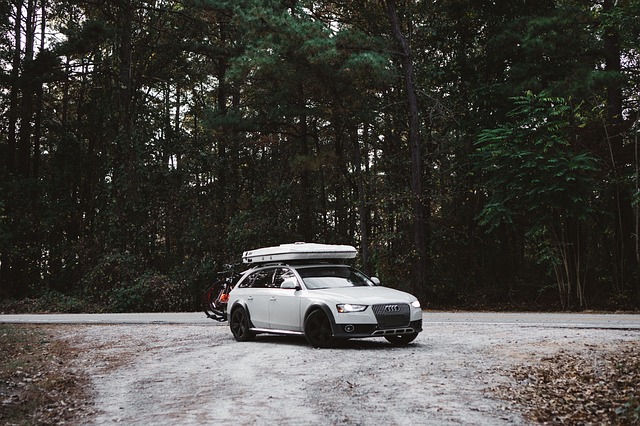
For Canadians, summer is always a welcome sight. The change in seasons automatically invokes thoughts of sunny days, picnics, barbeques and road trips. Regardless of whether it is a short drive to the beach, a cross-Canada road trip, or a cross-border excursion into the United States, vacations can be interrupted by accidents anywhere and at any time.
Being confronted with the immediate aftermath of a car accident in your home province is difficult enough to deal with, but this overwhelming feeling is multiplied when you are in a different country. As such, it is a good idea for Canadian vacationers to have a grasp of the landscape prior to setting out on the open road.
Does My Canadian Car Insurance Cover Me While I Am Driving In The United States?
Often, the answer is yes, as long as the trip is only for visitation purposes and not for permanent habitation. However, as it will become clear throughout this article, it is always prudent to contact your insurance provider and confirm that you are covered prior to embarking on your road trip.
Does My Canadian Car Insurance Cover My Rental Car While Driving In The United States?
Often, the answer is yes. However, this depends on your specific car insurance policy. For example, some car insurance policies do not have the same full range of coverage that is provided to you when you are driving your own car in Canada. Again, it is best to contact your insurance provider and confirm what coverage you have prior to renting.
The rental car provider will also offer some form of insurance coverage. When offered this insurance coverage, ensure that you are aware of what type of insurance coverage you are purchasing. You don’t want to make the mistake of misunderstanding what type of insurance coverage you are actually purchasing. For example, some renters make the mistake of purchasing collision damage coverage and believing that it is comprehensive bodily injury insurance.
Also, different rental companies have different rental contract and exclusionary terms (i.e. sets of circumstances where the rental car company can completely deny you coverage after an accident). As always, the fine print in the rental contract will detail what type of coverage you are actually purchasing and what sets of circumstances will preclude insurance coverage. Make sure to take the time to read the contract and ask for assistance from the rental car company’s salesperson to explain anything that is unclear to you. These employees have been trained to assist you in understanding their rental contracts.
There is one other insurance provider that may assist rental car drivers which many Canadians are unaware of: their credit card company. Many credit card companies, especially travel credit card providers, offer some form of rental car coverage. The best way to find out what type of coverage you have through your credit card is to review the benefits booklet that you received with your credit card or online, or to contact the toll-free number on the back of your credit card and speak with a representative. These credit cards often require that you pay for the rental car with the credit card itself.
Your credit card company may actually provide other forms of travel insurance that you may have never expected; for example, insurance for the theft of personal items while on vacation outside of Canada.
A Critical Difference In Canadian and American Auto Insurance
One major difference between the Canadian and American auto insurance system is the requirement of vastly different statutory minimum policy limits. In Ontario, it is a mandatory requirement that a car insurance policy has at least $200,000 of third party liability coverage. In most cases, Ontarians have a policy that has $1,000,000 of third party liability coverage. In the United States, in some states, the minimum mandatory coverage is as low as $10,000 U.S.D.. This difference between Canadian and American insurance coverage can be shocking, especially if a Canadian is involved in a car accident in the U.S. and has suffered severe injuries.
Fortunately, there is protection for Canadian vacationers. Most drivers will be able to access insurance benefits through their own insurance company even if the car accident occurred in the United States. In addition to seeking accident benefits from your own insurance company, you may also be able to claim against the insurance company of the other vehicle/driver in the United States.
If the other driver’s car insurance limits are insufficient to respond to your claim, Canadians may be entitled to start a claim against their own insurance company for underinsured benefits (i.e. OPCF 44R coverage). Underinsured benefits are, in effect, a form of protection that drivers have to protect them when an at-fault driver’s insurance coverage is not enough to compensate them for their losses. In other words, after an accident in the United States, Canadian drivers can seek compensation from their own insurance company and the American driver’s car insurance policy for their losses.
As many American lawyers are not familiar with Canadian auto insurance and accident benefits, it is best to consult with a Canadian lawyer who can assist with the Canadian accident benefits, pursue the underinsured benefits, and he/she can facilitate the finding of an American lawyer who can simultaneously advance the lawsuit against the at-fault American driver in the United States.
Enjoy the summer and the open road. Be safe and happy travels!
For more information or to discuss an injury due to a car accident, please contact personal injury lawyer Michael J. Henry at 416-361-0889, email at mjhenry@hshlawyers.com.






